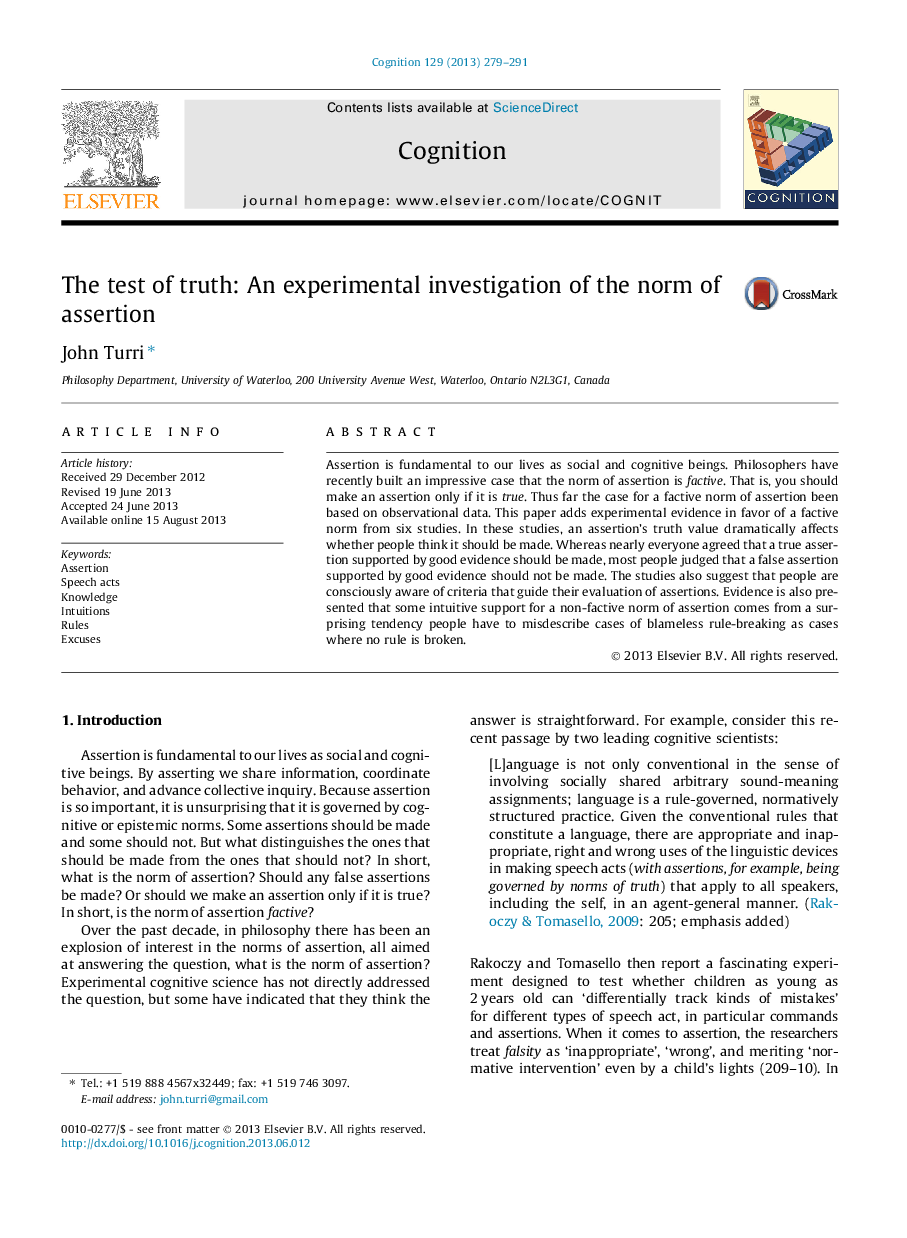| کد مقاله | کد نشریه | سال انتشار | مقاله انگلیسی | نسخه تمام متن |
|---|---|---|---|---|
| 926386 | 921858 | 2013 | 13 صفحه PDF | دانلود رایگان |

• The first study to investigate the norm of assertion experimentally.
• Results from six experiments support the view that assertion has a factive norm.
• People tend to be consciously aware of the criteria that guide their assessment of assertions.
• People often misdescribe blameless rule-breaking as a case where no rule is broken.
Assertion is fundamental to our lives as social and cognitive beings. Philosophers have recently built an impressive case that the norm of assertion is factive. That is, you should make an assertion only if it is true. Thus far the case for a factive norm of assertion been based on observational data. This paper adds experimental evidence in favor of a factive norm from six studies. In these studies, an assertion’s truth value dramatically affects whether people think it should be made. Whereas nearly everyone agreed that a true assertion supported by good evidence should be made, most people judged that a false assertion supported by good evidence should not be made. The studies also suggest that people are consciously aware of criteria that guide their evaluation of assertions. Evidence is also presented that some intuitive support for a non-factive norm of assertion comes from a surprising tendency people have to misdescribe cases of blameless rule-breaking as cases where no rule is broken.
Journal: Cognition - Volume 129, Issue 2, November 2013, Pages 279–291